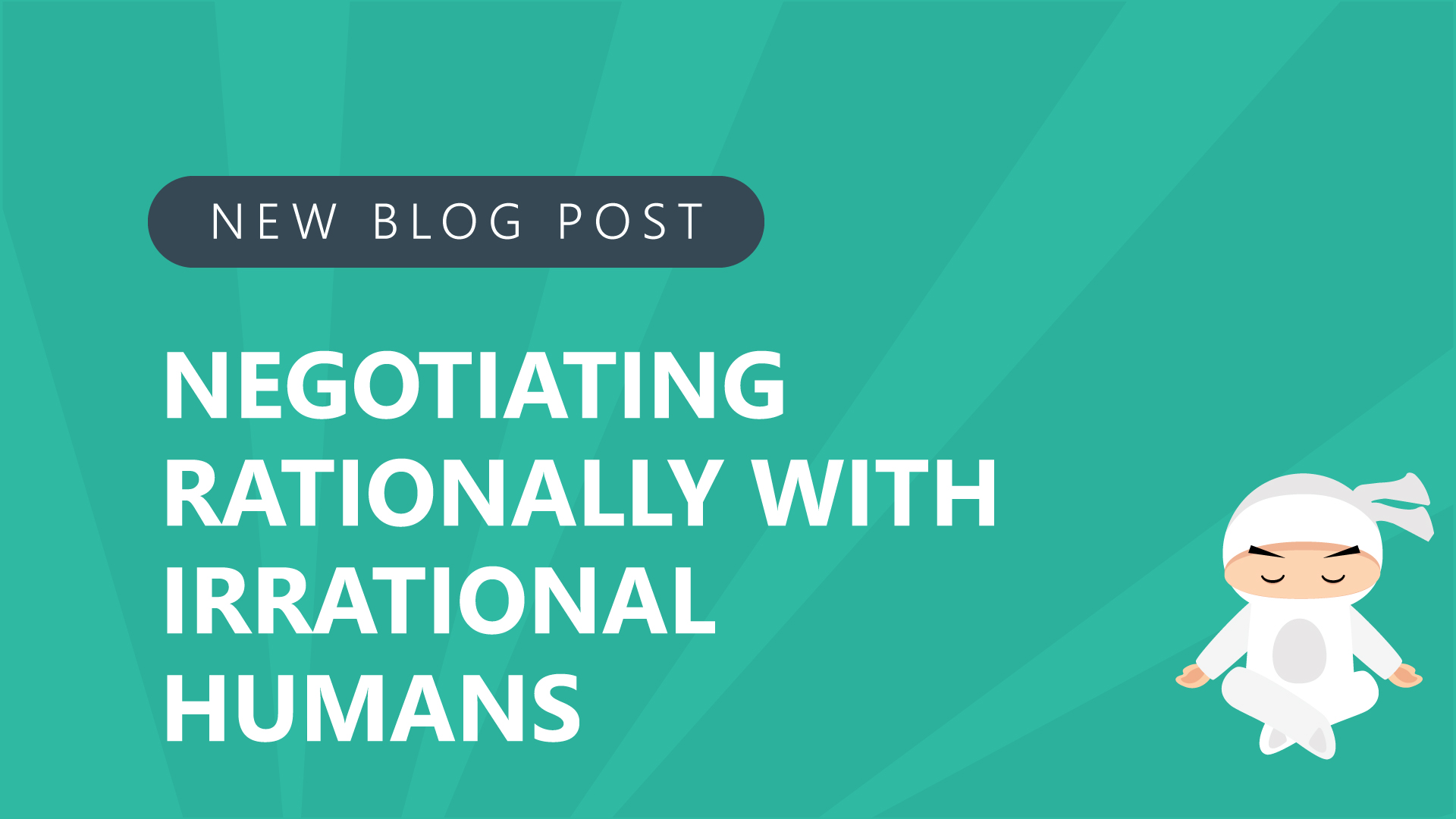Humans aren’t rational beings. It’s been studied and proven repeatedly. We may desire to make rational decisions. We may think we’re making rational decisions. But the truth tells a different story.
Can a rational negotiation framework be applied to an irrational human? Andreas Winheller points out that you have to start with research. What does the research tell us?
Framing is important
If you are selling oranges, you can do it in two ways. You can give someone oranges if they give you $2. Or, if they give you $2, you can give them oranges.
Rationally speaking, the tradeoff is purely the same, right? But framing research has found that the difference in the end price is 30% higher when you choose the best frame for you.
- You can structure sentences differently to elicit different results.
- You can generate different responses based on sentence structure.
- You can change how someone feels about something you say based on how you say that thing.
Those last three sentences said basically the same thing but were all formatted and worded differently. The information may be the same, but the result is different.
Understanding how the brain works is important
The unconscious part of the brain makes the decisions. Most people focus their attention on the first bit of information they receive. The result is loss aversion is activated. If it is “your” orange and you fear losing it, the result may be you getting more rigid and less open to concessions.
The reason you get a better price by saying, “I’ll give you my oranges if you give me $2,” is because you’re negotiating strongly. The counterpart may concede more. There’s nothing rational or logical about it. But it’s how the irrational part of our brains works.
Understanding physical framing is important
Andreas emphasizes that physical framing makes a difference, too. The time of day, the environment you’re in, how you slept the night before, the color of the walls, the type of chairs you’re sitting in, and so many other factors influence decision-making. If you implement that in your strategy you’ll be more successful in reaching your goals.
A study on judicial decisions on parole hearings in Israel found that judges are more likely to be lenient after a meal and more severe before the break. The study found that the granting of parole was 65% at the start of a session and dropped to almost zero before a meal break. After the break, it returned to 65%.
It often comes down to decision fatigue. If the brain has worked a lot, it avoids complex decision-making. The study has been replicated with people deciding on loans.
But are cultural differences at play? Israelis drop everything for lunch and have lunch together with other people. But Germans and Americans often eat something quickly at their computer. They don’t regain performance during a break like that. Decision fatigue is far more complex.
Another study found that drinking a hot coffee or cold Coke can impact your negotiation. When you drink a warm drink, you’re more likely to have a cooperative and respectful negotiation than if you drink a cold Coke.
The point is that many external factors impact your decision-making. Rational frameworks can be utilized if they take into account the impact of the irrational human decision-making process. Andreas shares more in episode #443 of Negotiations Ninja. Go listen.

